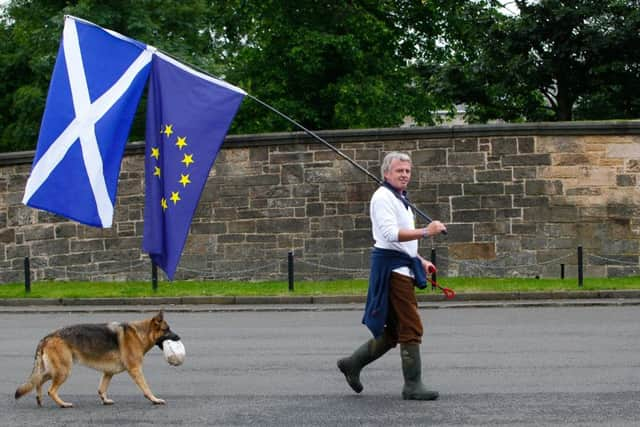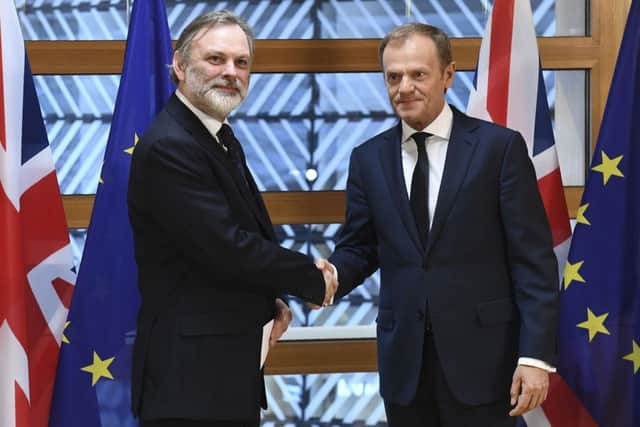Poll: majority of Scots don't want separate Brexit deal


The study from NatCen Social Research found that while the majority of Scots voted to stay in the European Union, their expectations on key aspects of the UK’s exit deal broadly match those across Britain.
Professor John Curtice, the author of the report, said the findings call into question whether concerns over leaving the EU will boost support for independence.
Advertisement
Hide AdAdvertisement
Hide Ad

The research, based on a survey of 859 Scots between February 5 and March 2 and a Britain-wide poll of 2,322 people, was published the day after the process for leaving the EU was formally triggered by the Prime Minister.
It found 93% of Scots are in favour of maintaining free trade with the EU after Brexit, compared with 88% across Britain.
Meanwhile, 65% of Scots think EU immigrants should be treated in the same way as non-EU immigrants, only slightly lower than 68% across Britain.
The study also suggests there is little appetite for a distinctive deal.


Almost two-thirds (62%) of Scottish voters think that after Brexit, the rules on trade and immigration should be the same in Scotland as they are in the rest of the UK.
But it also found Scots are more likely than voters across the whole of Britain to accept people from the EU should be allowed to come to the UK to live and work in return for British companies being able to trade freely in the EU.
A total of 61% of Scots said the UK should “definitely” or “probably” allow free movement of people in return for free trade, compared with 54% across Britain.


The UK Government has made it clear Britain will not remain a full member of the European single market, requiring freedom of movement, and will seek a new free trade deal with the EU.
Advertisement
Hide AdAdvertisement
Hide AdThe Scottish Government proposed special arrangements to allow Scotland to remain in the trade bloc and gain powers over areas such as immigration.
First Minister Nicola Sturgeon announced plans to call a second independence referendum after stating her proposals had been met with “intransigence”.
Prof Curtice said: “Much of the debate about Brexit in Scotland has assumed that voters north of the border want a much softer Brexit than voters in the rest of the UK. Indeed, the Scottish Government’s demand for a second independence referendum rests on such an assumption.


“However, this first systematic study of attitudes towards Brexit in Scotland shows that for the most part voters on both sides of the border want much the same outcome - free trade, immigration control and retention of much of the consumer and environmental regulation currently afforded by the EU.
“This means that on immigration in particular, voters in Scotland seem to be more in tune with the stance taken by the UK Government than that adopted by the Scottish Government.”
Scottish Conservative constitution spokesman Adam Tomkins said: “This report dismisses the myth that Scots think differently from any other part of the United Kingdom when it comes to the Brexit negotiations.
“Like the UK Government, Scots want the best deal for Scotland and the UK, and to secure the freest possible trade with the single market.
“Polls have consistently shown that there is no appetite for a second referendum, but these figures prove that there is also no demand for a differentiated deal for Scotland either.”
